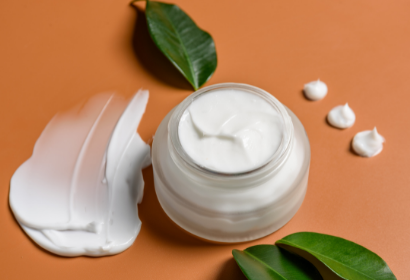
Skin whitening, also known as skin bleaching, is trending globally in the beauty industry. This is especially common among dark-skinned people who believe that having a lighter skin colour makes one more beautiful.
But have you ever wondered about the health implications of bleaching the skin? Or even how the act of skin bleaching can affect vital organs in the body like the kidneys?
Indeed, after bleaching, the skin may look amazing in the short term, but we can’t say the same in the long term. Bleaching your skin will make it lighter in complexion; however, it can cause serious health complications such as kidney problems in the long run.

Skin bleaching is the process of using creams, gels, soaps, pills, injections, or professional treatments such as laser therapy and chemical peels to achieve a lighter skin tone.
The skin pigment most affected in the bleaching process is Melanin. Skin bleaching products work by reducing the concentration and production of melanin to make the skin lighter in complexion.
The amount of melanin produced in the body is what determines if you will be light or dark-skinned. Melanin also helps to protect the skin from the sun’s harmful ultraviolet (UV) rays and reduces the risk of skin cancer. Melanin is produced in higher concentrations in dark-skinned individuals, and it is what gives them a darker skin tone.
Skin bleaching doesn’t have any health benefits. People mostly do it for cosmetic reasons, such as to:
• lighten age spots and blemishes
• reduce the appearance of acne scars and freckles
• even out or alter their skin tone
• help them to feel more attractive, desirable, and confident

There are different active ingredients in skin-bleaching products. Some of these ingredients may be more effective than others, while the rest may be ineffective or even contain toxic chemicals that have harmful side effects.
Most skin-bleaching products contain:
Hydroquinone is a common bleaching agent used in treating hyperpigmentation and discoloration. The excessive and prolonged use of bleaching creams containing hydroquinone may result in exogenous ochronosis, a skin condition that causes blue-black pigmentation.
Excessive use of hydroquinone in addition to certain foods such as eggs, fish, and beans may cause some people’s body secretions such as urine and sweat to have an unpleasant fishy smell.
Hydroquinone in skin bleaching products is sometimes listed in the ingredients with other names, such as: Hydroquinol, 1, 4-Benzenediol, Quinol, p-Diphenol, Hydrochinone, Benzene-1,4-diol, Tequinol, Hydrochinonium, p-Dihydroxyl benzene, and p-Hydroxylphenol.
Topical retinoid is mainly found in bleaching products as “tretinoin”. It reduces the production of melanin and thins the skin to allow other agents to penetrate the skin. It has a high risk in pregnancy and can cause contact irritant dermatitis.
These are found as over-the-counter medications for treating different skin issues such as eczema and ringworms. They can also be used for bleaching the skin. Prolonged usage can result in side effects such as skin thinning, stretch marks, and steroid addiction syndrome, which can cause steroid rosacea and folliculitis.
This is a skin-lightening agent in creams used in treating hyperpigmentation and bleaching the whole skin. Cysteamine cream is applied on the skin for 15 minutes daily, after which it is washed off, and moisturizer can be applied. This is done for about 12 weeks. To maintain the result, Cysteamine cream is often applied twice weekly.
Cysteamine cream can cause temporary inflammation, dryness, and irritation to the skin.

Some skin-lightening agents found in today’s cosmetics are natural ingredients derived from plants. These ingredients seem to help prevent melanin production without harming the melanocyte. They include:
• Kojic acid – a compound derived from a fungus
• Morus alba extract – extract from white mulberry
• Arbutin – obtained from various plants
• Proanthocyanidin – found in grapeseed extract
• Pycnogenol – from the bark of French maritime pine
• Cinnamic acid – from cinnamon
• Licorice extract – obtained from the root of Glycyrrhiza Glabra Linnera
• Others include vitamin C, vitamin E, soy protein, green tea extract, flavonoids, and polyphenols.
Although the National Agency for Food and Drug Administration (NAFDAC) warns that injections for skin bleaching may be unsafe, people still use them. The injection given for skin lightening is Glutathione. No research reveals that this injection is effective, so anyone using it is taking a big risk.
Mercury is a heavy metal that exists in liquid form. It was found as the active ingredient in most skin-bleaching products in the early 20th century before it was discovered that it is toxic. Mercury can deactivate the enzyme that produces melanin. When it accumulates in the body, it leads to mercury poisoning and causes severe neurological, psychiatric, and kidney problems.
Skin bleaching products containing mercury have been linked to a kidney disorder known as nephrotic syndrome. A 2021 study revealed that mercury absorbed through the skin can result in mercury poisoning-induced nephrotic syndrome.
Nephrotic syndrome is a kidney disorder caused by damage to kidney nerves that are responsible for filtering waste and water from the blood and balancing salt and mineral levels. This causes the body to excrete more protein than it should into your urine.
Symptoms of nephrotic syndrome include:
• foamy urine
• loss of appetite
• fatigue
• swollen feet and ankles
• swelling around the eyes
Note that mercury poisoning can also affect unborn and new born babies as it can be passed from the mother to the unborn child or from the mother’s skin to that of the baby.
Also, Hydroquinone is not left out when it comes to bleaching agents that adversely affect the kidney. A study published in the journal Toxicologic Pathology, suggests that prolonged use of hydroquinone may result in kidney failure.

The life we live is filled with adventure; you can live it anyway you deem fit and fun. In some stages of our lives, we always want to explore further into other aspects of life, envisioning positive end results; however, in some cases, the outcome can leave us with uncertainties. The fact is that there is no stipulated right or wrong way to live your life; however, it is necessary to inquire about certain issues that you do not have answers to. Though no one has all the answers to everything, some people endeavour to get ground knowledge in a particular field of life and are able to give you the required advice on that field.
This is where telemedicine makes it easier for everyone.
Skin bleaching is a choice not a necessity; before you explore it, make an in-depth inquiry by consulting a dermatologist on the benefits and side effects. Just a click away on your mobile device and the answers to your life explorations are met. You neither need to queue on a waiting line nor have to travel away from home or work to get medical advice about your health and life quest. Kompletecare got you; all discussions with the professionals are confidential and with mutual trust and respect. Speak with a professional.
Skin bleaching can be done through a cosmetic procedure to lighten a person’s skin. Some people might use skin bleaching to brighten dark patches or specific regions of their skin, while others might want to lighten their skin tone altogether.
Nevertheless, many skin-tone-lightening creams are unsafe for you and your overall well-being. A study states that skin bleaching is dangerous for your health since it often contains mercury, a heavy metal that is toxic. It is safer to use niacinamide and hydroquinone.
2. How long does skin bleaching last?
The skin bleaching effects on you can have an almost four-week lifespan if maintained. As was previously said, you can get harm in many, when you frequently indulge in skin bleaching. Giving a 4-to 8-week interval between each skin bleaching procedure is essential for your body to recuperate.
3. Is skin bleaching permanent?
Evidently, skin bleaching does not last, so it is not a permanent procedure at some point, especially when you discontinue the use of skin-bleaching products. Your actual skin tone will reset to its natural tone.
Also, in actuality, skin-bleaching products do not completely eliminate melanin. This is due to your skin’s ability to activate the continuous renewal process by forming new melanin. The melanin renewal mechanism involves the melanocytes, which are the cells that produce melanin.
4. What are the side effects of skin bleaching?
Skin bleaching side effects are a result of the presence of chemical compounds like hydroquinone, corticosteroids, and mercury (Hg) poisoning. They constitute a number of known harmful health effects associated with skin bleaching, which include dermatitis, exogenous ochronosis, steroid acne, and nephrotic syndrome. Due to health concerns, some of these chemicals are regulated.
You can still find these compounds in some cosmetic products in areas where the legal limits are well-regulated and implemented. However, access to a number of legal and illegal skin-bleaching product including prescription for hydroquinone and topical corticosteroids, is made accessible through online purchasing, global travel, and immigration.
5. How can you tell if someone is bleaching their skin?
Yes, you can tell if someone is having their skin bleached. There is a difference between bleached skin and natural skin. You can easily notice bleached skin by the degree of skin tone fluctuation.
Bleached skin turns red when you go under the sun, and it can also darken or lighten sometimes for no reason. In an early morning cold, skin bleached with steroid cream appears yellow and tones down to grey or darkens a bit as the day goes on.
Skin bleaching will make you look incredibly lightened throughout the rest of the body, with the exception of the knuckles, which will keep their original colour and stand out against the lighter fingers since they are particularly tough to bleach.
Bleached skin appears thin and delicate and causes hormonal imbalances due to the steroid cream. The hormonal imbalances can cause facial hair in females.
6. What happens to your skin when you stop bleaching?
As was said earlier, skin bleaching is not permanent. To have your natural skin tone back, stop using the skin bleaching product; skin bleaching creams are not irreversible, which implies that all you need to do is stop applying them.
However, your skin will not return to its natural beauty quickly after stopping the cream; it will happen slowly over a period of weeks.
7. How can I lighten my skin without bleaching it?
Skin bleaching or lightening can be done naturally on your own at home. The methods listed below can help with skin bleaching or lightening at home:
Homemade masks for the face
Face masks can be made twice or three times a week at home with natural materials. The following are a few masks that might help lighten skin and lessen pigmentation:
Yogurt, lemon, and gram flour mask: Yogurt is a nutrient-dense milk product. Yogurt contains lactic acid, which naturally lightens the skin. Vitamin C, which is found in lemons, can lighten discoloration. Gram flour contributes to the mask’s thickening and paste-like texture.
Additionally, gram flour has a mild exfoliating scrub effect on the skin, enhancing its texture and lowering high-degree discolouration. After applying the mask to the entire face, neck, and any other dark spots, you can wash it off after 30 minutes.
Papaya, banana, lemon, honey, and gram flour mask: The vitamins and minerals in papaya, banana, lemon, honey, and gram flour mask can naturally brighten and nourish the skin. They can be ground into a paste, applied to the entire face, and then removed with a 20-minute face wash.
Aloe Vera, milk, and apple cider vinegar can brighten your skin.
Apple cider vinegar: Acetic acid, found in apple cider vinegar, can lessen acne and lighten discoloration. Applying apple cider vinegar to the skin requires diluting it with an equal amount of water. After two to three minutes, it ought to be rinsed off. This could be done once or twice a day, every day.
Aloe Vera: Aloin is a natural depigmenting agent found in aloe vera that enhances its lightening properties. The dark or discoloured areas can be treated with pure Aloe Vera gel at night and then removed in the morning by washing.
Milk: Since they contain lactic acid, milk, buttermilk, and even sour milk can help lighten skin. After soaking a cotton ball in plain milk, apply it all over the affected regions and wash it off after twenty to thirty minutes. This could be done once or twice a day, every day. Additionally, milk can efficiently moisturize the skin.
8. How to lighten your skin with nutrition, diet, and water
It has always been known that the right diet, nutrition, and water play a crucial role in skin and other organs functionality. Drinking 8 to 10 glasses of fluids a day and maintaining a healthy, balanced diet high in fruits and vegetables are essential for maintaining good skin health because they can increase skin cell turnover, which improves skin tone and texture.
Many components found in fresh fruits and vegetables can naturally brighten skin. Also, as they support the maintenance of excellent health, one can think about taking nutritional supplements, particularly those containing omega-3 fatty acids, vitamin C, vitamin B, and vitamin E.
9. Using sunscreen can make your skin lighter.
The use of sunscreen is necessary to block off sun damage. UV radiation from the sun tans the skin, burns the skin, induces other pigmentation issues, and decreases skin elasticity, all of which contribute to the early aging of the skin. Chronic diseases, like skin cancer, are diseases associated with prolonged sun exposure.
You will lighten your skin by preventing sun-induced hyperpigmentation since your skin cells naturally renew continuously.
10. Why is my skin turning black after bleaching?
Your skin turns black after bleaching due to a skin disorder called exogenous ochronosis (EO). This skin disorder causes blue-black pigmentation. It is a manifestation of prolonged use of skin-bleaching products that have hydroquinone chemicals. The blue-black spots are more likely to appear on the skin when you use the skin-bleaching product on your entire body or on a large area of your skin.
Bhattacharya, S. (2022). How to bleach your skin: An essential guide to achieve brighter skin.
Heidelb, D. T. (2016). Skin bleaching and dermatologic health of African and Afro-Caribbean populations in the US: New directions for methodologically rigorous, multidisciplinary, and culturally sensitive research.
Njoroge-Kristian, I. (2014). Telltale signs of skin that is bleached.
Radhakrishnan, R. (2024). How can I lighten my skin naturally?
Skintrium. (2024). Skin bleaching.
Vilines, Z. (2022). What to know about skin bleaching.
healthcareAugust 13, 2022
Men's HealthSeptember 23, 2022
healthcareNovember 7, 2024
MedicationNovember 25, 2024
NutritionFebruary 5, 2025
MedicationFebruary 5, 2025








